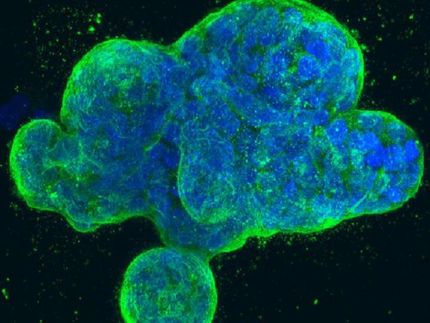Disarming specialized stem cells might combat deadly ovarian cancer
Advertisement
Eliminating cancer stem cells (CSCs) within a tumor could hold the key to successful treatments for ovarian cancer, which has been notoriously difficult to detect and treat, according to new findings published in Oncogene by Yale School of medicine researchers.
"We found that stopping the expression of two genes — Lin28 and Oct4 — reduces ovarian cancer cell growth and survival," said Yingqun Huang, M.D., assistant professor in the Department of Obstetrics, Gynecology & Reproductive Sciences at Yale School of Medicine.
Ovarian cancer has been challenging to treat because it tends to recur frequently and develop resistance to treatment. The poor outcome for women with ovarian cancer has been associated with subtle and nonspecific symptoms — earning it the moniker the "disease that whispers."
"This recurrence and drug resistance may be due to the presence of CSCs within the tumors that have the capacity to reproduce and to differentiate into non-CSC tumor cells that repopulate the tumor mass," said Huang, who is a member of Yale Stem Cell Center and Yale Cancer Center. "Eliminating these CSCs may be key to successful treatments."
While in the process of studying the functions of stem cell proteins in human embryonic stem cells, Huang and her colleagues unexpectedly discovered that a sub-population of ovarian cancer cells express stem cell proteins Lin28 and Oct4. They also found that the two proteins appear to act together in ovarian cancer tissue cells to produce more advanced tumors. Inhibiting their combined expression led to a significant decrease in the growth and survival of cancer cells. A larger-scale ovarian cancer study is currently underway to confirm the significance of the findings.























































